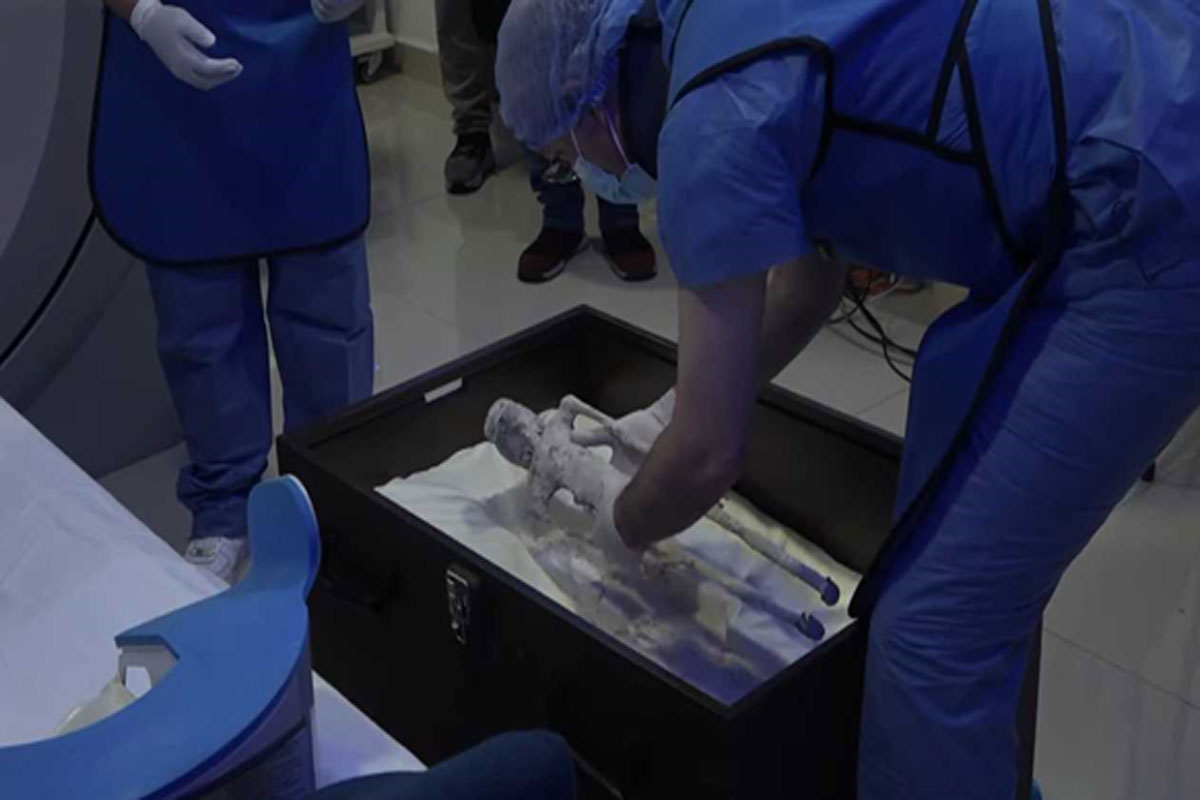
The Mysterious and Tragic Case of the Man with a 10-Second Memory
Brent Swancer November 3, 2021
The human mind and brain have always been a tangled wilderness of the unknown. What things lurk out in the gloom of this hidden landscape within us, and what sorts of horrors might await us there? One area of the unknown that perhaps doesn’t get enough attention is that of mysterious cases of recurring amnesia, with peoples’ memories wiped on a constant basis to leave them alone and in the dark. I have recently written of a man whose recurring amnesia caused him to relive his life on reset every minute, and although that may sound extreme, there are even worse cases of this sort of amnesia happening. One of the most extreme and horrifying cases of an amnesiac on record is the man whose life reset every 10 seconds or so, leaving him in an eternal fog that left him unable to know who he or anyone else was.
Born in 1938, Clive Wearing is a British former accomplished musicologist, conductor, tenor and keyboardist with a long and expansive music career, winning critical acclaim from his peers and fans. He was the founder of the Europa Singers of London, an amateur choir specializing in the music of the 17th, 18th, and 20th centuries, provided choruses for numerous operas staged by the London Opera Centre, including Lully’s Alceste and Mozart’s Marriage of Figaro, and had a job with the BBC, in charge of the musical content of BBC Radio 3. Known as an incredibly talented musician and for his meticulous research into recreating period scores with authentic instruments, his life was going great until 1985, when his entire existence would be turned inside out and banish him into a world that he would perpetually forget ever existed.
 In March of 1985, as he was at the height of his amazing career, Wearing came down with a herpes simplex virus called herpesviral encephalitis, which attacks the brain and central nervous system. Although he survived the illness, it would soon turn out that it had left him in quite the unusual and horrifying state. The illness had targeted an area of the brain called the hippocampus, an area required to transfer memories from short-term to long-term memory, meaning he had lost his ability to form new episodic memories of his life. It is a state called “anterograde amnesia,” in which new memories are wiped away from the mind, and in the case of Wearing, it seems as though he was only able to grasp new memories for just seconds before they would be deleted and he would start again, forgetting everything from within moments and his life reset. His wife, Deborah Wearing, would say of this in her 2005 memoir on the matter, Forever Today:
In March of 1985, as he was at the height of his amazing career, Wearing came down with a herpes simplex virus called herpesviral encephalitis, which attacks the brain and central nervous system. Although he survived the illness, it would soon turn out that it had left him in quite the unusual and horrifying state. The illness had targeted an area of the brain called the hippocampus, an area required to transfer memories from short-term to long-term memory, meaning he had lost his ability to form new episodic memories of his life. It is a state called “anterograde amnesia,” in which new memories are wiped away from the mind, and in the case of Wearing, it seems as though he was only able to grasp new memories for just seconds before they would be deleted and he would start again, forgetting everything from within moments and his life reset. His wife, Deborah Wearing, would say of this in her 2005 memoir on the matter, Forever Today:
His ability to perceive what he saw and heard was unimpaired. But he did not seem to be able to retain any impression of anything for more than a blink. Indeed, if he did blink, his eyelids parted to reveal a new scene. The view before the blink was utterly forgotten. Each blink, each glance away and back, brought him an entirely new view. I tried to imagine how it was for him. . . . Something akin to a film with bad continuity, the glass half empty, then full, the cigarette suddenly longer, the actor’s hair now tousled, now smooth. But this was real life, a room changing in ways that were physically impossible. It was as if every waking moment was the first waking moment. Clive was under the constant impression that he had just emerged from unconsciousness because he had no evidence in his own mind of ever being awake before. . . . “I haven’t heard anything, seen anything, touched anything, smelled anything,” he would say. “It’s like being dead.”
The estimated life span of his newly acquired memories seemed to fluctuate from anywhere between just a couple of seconds to up to half a minute, his consciousness then simply rebooting or restarting after this to cause him to sort of wake up again with no recollection of anything that had transpired or who he was. At first he himself believed that he had just awoken from a comatose state or even from death, and he would demand to see a doctor, after which he would reset and do this again and again, every 5 to 30 seconds, on average around 7 to 10 seconds, unable to grasp where he was or what had happened to him after the time had elapsed. He would often stare in astonishment at objects in his hand, which to him had magically appeared there as if some kind of magic trick, reintroduce himself to people he had just met, forget where things were, and generally could not function in any normal capacity. During conversations he would often stop as his memory was wiped, then continue the very same conversation from the beginning again, including reintroducing himself. Indeed, meeting anyone would turn into a constant stream of reintroductions as they reverted back to a stranger every few seconds, and so he was unable to have normal relations with people.
 Making it all even worse was that he also suffered what is called “retrograde amnesia,” in which the events of the victim’s past life are completely wiped away, meaning not only could Wearing not form any new memories for very long, but he also did not remember much of his life before his sickness either, his former life nearly entirely deleted as well as surely as his unfolding life, keeping him in a state of constant present tense. Although he was mostly devoid of memories of his past and had no ability to form lasting memories in the present, there were still oddly certain things that he could vaguely recall on some level. For instance, he knew that he was a musician and was somehow aware that he had children from an earlier marriage, although their names eluded him, and he also seemed to recognize his present wife, Deborah, with who he been newly married at the time of his sickness, always happy to see her even though he did not know her name and 10 seconds later he would be meeting her for the first time again. He would greet her several times a minute, snapping into a new life and greeting her like a long lost friend even though she had not gone anywhere. He seems to still be very much in love with her without really understanding why and encountering her constantly like meeting a stranger to him. Indeed, it seems that she has been the only person who he has recognized on some level consistently, and Deborah would say of this in her memoir:
Making it all even worse was that he also suffered what is called “retrograde amnesia,” in which the events of the victim’s past life are completely wiped away, meaning not only could Wearing not form any new memories for very long, but he also did not remember much of his life before his sickness either, his former life nearly entirely deleted as well as surely as his unfolding life, keeping him in a state of constant present tense. Although he was mostly devoid of memories of his past and had no ability to form lasting memories in the present, there were still oddly certain things that he could vaguely recall on some level. For instance, he knew that he was a musician and was somehow aware that he had children from an earlier marriage, although their names eluded him, and he also seemed to recognize his present wife, Deborah, with who he been newly married at the time of his sickness, always happy to see her even though he did not know her name and 10 seconds later he would be meeting her for the first time again. He would greet her several times a minute, snapping into a new life and greeting her like a long lost friend even though she had not gone anywhere. He seems to still be very much in love with her without really understanding why and encountering her constantly like meeting a stranger to him. Indeed, it seems that she has been the only person who he has recognized on some level consistently, and Deborah would say of this in her memoir:
Clive was constantly surrounded by strangers in a strange place, with no knowledge of where he was or what had happened to him. To catch sight of me was always a massive relief—to know that he was not alone, that I still cared, that I loved him, that I was there. Clive was terrified all the time. But I was his life, I was his lifeline. Every time he saw me, he would run to me, fall on me, sobbing, clinging.
He also seems to recall the names of certain things, although he will often forget what they are used for. When eating, he has a sense of what foods are or what they are known as, but often cannot remember what he has eaten after taking a bite. He could also in a sense remembers motor skills simply by doing them over and over again, with the procedures being etched into his brain while bypassing his episodic memory, although he cannot remember how he has acquired a certain skill or where he has learned it. He also seems to be aware of the layout of his own house, able to find where most things are through purely going through the motions again and again, although he cannot describe these things in words and cannot consciously explain the layout of his house in any sense. He cannot say where things are, but he can nevertheless go to them, and he has a grasp of rote daily routines. Psychologist Oliver Sacks, who spent some time studying Wearing, would write of this journal in an article in The New Yorker:
He can shave, shower, look after his grooming, and dress elegantly, with taste and style; he moves confidently and is fond of dancing. He talks abundantly, using a large vocabulary; he can read and write in several languages. He is good at calculation. He can make phone calls, and he can find the coffee things and find his way about the home. If he is asked how to do these things, he cannot say, but he does them. Whatever involves a sequence or pattern of action, he does fluently, unhesitatingly.
 Rather interestingly, although he cannot remember the names of musical pieces or composers, nor often even what an instrument is called, he has retained the ability to play instruments, and can belt out complex piano and organ pieces and even improvise without having any idea of how he has learned them or from where they are coming from. All of this is thought to be down to his semantic memory, procedural memory and muscle memory all remaining intact, meaning his body and parts of his mind remember things he has constantly repeated but he has no conscious awareness of this. He somehow channels all of these engrained skills, knowledge, and his musical ability from some mysterious place in his mind, even though his autobiographical self, the self that depends on explicit, episodic memories to exist, is virtually nonexistent. Despite the fact that Wearing lives literally moment to moment, essentially reborn with a blank slate several times a minute, he nevertheless is also obviously aware that something very strange is happening to him, yet doesn’t understand exactly what that is. In interviews he has often expressed this awareness of his mysterious condition, which he has described as being like death. In one 2005 BBC appearance he was asked what his life was like, and he ominously explained:
Rather interestingly, although he cannot remember the names of musical pieces or composers, nor often even what an instrument is called, he has retained the ability to play instruments, and can belt out complex piano and organ pieces and even improvise without having any idea of how he has learned them or from where they are coming from. All of this is thought to be down to his semantic memory, procedural memory and muscle memory all remaining intact, meaning his body and parts of his mind remember things he has constantly repeated but he has no conscious awareness of this. He somehow channels all of these engrained skills, knowledge, and his musical ability from some mysterious place in his mind, even though his autobiographical self, the self that depends on explicit, episodic memories to exist, is virtually nonexistent. Despite the fact that Wearing lives literally moment to moment, essentially reborn with a blank slate several times a minute, he nevertheless is also obviously aware that something very strange is happening to him, yet doesn’t understand exactly what that is. In interviews he has often expressed this awareness of his mysterious condition, which he has described as being like death. In one 2005 BBC appearance he was asked what his life was like, and he ominously explained:
You’re the first human beings I’ve seen, the three of you. Two men and one lady. The first … people I’ve seen since I’ve been ill. No difference between day and night. No thoughts at all. No dreams. Day and night, the same – blank. Precisely like death. It’s exactly the same as being dead, which is not difficult, is it? To be dead is easy. You don’t do anything at all. You can’t do anything, when you are dead. It’s been the same. But I’ve never been conscious to think that. So I’ve never been bored or upset. I’ve never been anything at all, it’s exactly the same as death. No dreams even. Day and night, the same.
Wearing’s doctors would prescribe to him the task of writing a journal in order to have some sort of anchor to his constantly shifting life, which would prove to be a haunting testament to his personal hell. Dr. Sacks would say of this:
Desperate to hold on to something, to gain some purchase, Clive started to keep a journal, first on scraps of paper, then in a notebook. But his journal entries consisted, essentially, of the statements “I am awake” or “I am conscious,” entered again and again every few minutes. He would write: “2:10 P.M: This time properly awake. . . . 2:14 P.M: this time finally awake. . . . 2:35 P.M: this time completely awake,” along with negations of these statements: “At 9:40 P.M. I awoke for the first time, despite my previous claims.” This in turn was crossed out, followed by “I was fully conscious at 10:35 P.M., and awake for the first time in many, many weeks.” This in turn was cancelled out by the next entry. This dreadful journal, almost void of any other content but these passionate assertions and denials, intending to affirm existence and continuity but forever contradicting them, was filled anew each day, and soon mounted to hundreds of almost identical pages. It was a terrifying and poignant testament to Clive’s mental state, his lostness, in the years that followed his amnesia—a state that Deborah, in Miller’s film, called “a never-ending agony.
Wearing is still living those same 7 to 30 seconds over and over again, yet with Deborah at his side and his ability to channel through him the music he loves, he has at least achieved some semblance of peace, even though he might not ever consciously realize why, his identity fleeting and elusive. Those who meet him are surprised to see that he is not the despondent, depressed husk of a man they expect him to be, but rather a friendly, charming person who seems to have found some way to cope, and to be happy rather than be sucked into utter despair. Dr. Sacks has given his own insight into how Wearing has managed to get through his life and retain some normalcy despite his condition:
For him, nothing has moved on. One might say he is still in 1985 or, given his retrograde amnesia, in 1965. In some ways, he is not anywhere at all; he has dropped out of space and time altogether.
He no longer has any inner narrative; he is not leading a life in the sense that the rest of us do. And yet one has only to see him at the keyboard or with Deborah to feel that, at such times, he is himself again and wholly alive. It is not the remembrance of things past, the “once” that Clive yearns for, or can ever achieve. It is the claiming, the filling, of the present, the now, and this is only possible when he is totally immersed in the successive moments of an act. It is the “now” that bridges the abyss.
There are plenty of mysteries surrounding this enigmatic individual. Why is it that he remembers nothing from moment to moment, yet knows who his wife is to some extent and retains all of his musical skills? What processes are at work here? Why do some memories stick, while others fall away to be lost to oblivion? What does Wearing really perceive and what does this have to show us about the brain, memory, and indeed the human condition in general? There are few answers to such questions, and the case of Clive Wearing remains one of the most extreme and unexplained cases of mysterious amnesia there is.
MU*



















